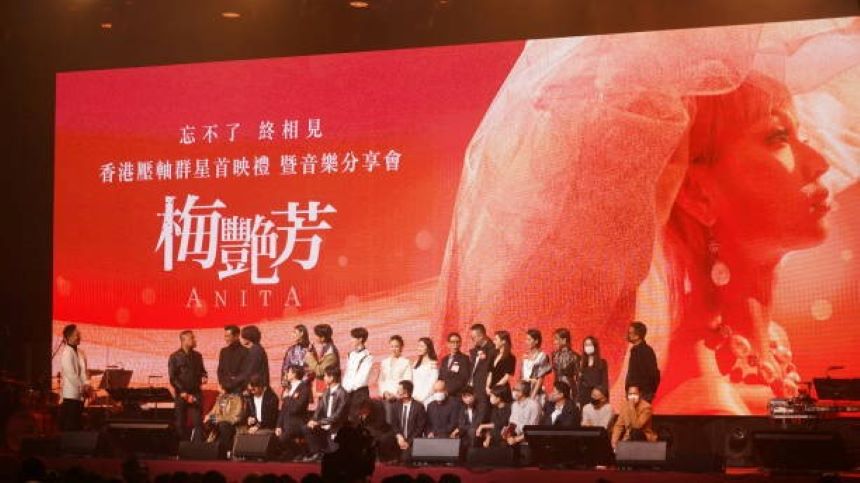Anita Mui was one of Hong Kong’s most popular superstars from the 1980s to the 1990s. Unfortunately, she died of illness in 2003 at the age of only 40. Anita Mui left behind many classic songs and movies, which became the memories of many Hong Kong people’s growth, and also witnessed the free, prosperous and glorious years of Hong Kong in the past.
Since the CCP forced the Hong Kong version of the “National Security Law” in Hong Kong last year, Hong Kong’s “One Country, Two Systems” has existed in name only. The CCP has suppressed the so-called “anti-government” protests in Hong Kong for several months, arrested many democrats, and strengthened censorship of Hong Kong’s speech. In Hong Kong today, many freedoms have disappeared, the media is banned, songs are banned, and even museums are strictly regulated.
Tang Hao said that Anita Mui represents a beautiful and colorful Hong Kong old era; compared to today’s Hong Kong under the rule of the Chinese Communist Party, it is even more embarrassing and can not help but recall.
French director Du Lufu, who is a film critic, once said, “When a film is successful to a certain extent, it becomes a sociological event.” From this perspective, from box office performance to social effects, “Anita Mui” has become Sociological events in Hong Kong.
However, the film did not mention the “June 4th” incident in 1989 and Hong Kong’s democratic past. According to Tang Hao’s analysis, the main reason may also be limited by the current Hong Kong political environment. He believes that this reflects that today’s Hong Kong has increasingly lost its traditional freedom, justice and courage.
In fact, on June 4, 1989, after the CCP sent troops to brutally suppress the students, Anita Mui spared no effort to support the students and oppose the CCP’s suppression. Not only did she decline to film “Ruan Lingyu” in mainland China, she also sang the CCP song “Blood-stained Demeanor” that changed the meaning of the lyrics many times to support the students’ efforts to fight for freedom and democracy. These deeds have been confirmed in the memoirs of the late Hong Kong democratic representative Situ Hua.
Situ Hua was the former chairman of the Hong Kong Stake Association. Before his death, he wrote his memoir-“Going East”. The book disclosed that Anita Mui had provided a lot of help to the “Operation Oriole” that secretly rescued the “June 4th” democrats. Situ Hua described Anita Mui as “sentimental and righteous, contributing money and effort” to the action. “Not only did Anita Mui refuse to sing in China, she also flew to the United States, Canada and other places to raise money for charity performances. The money raised was used to help the pro-democracy activists. But Anita Mui herself has never spoken about these charitable deeds.”
Tang Hao analyzed that for many Hong Kong people, Anita Mui was not only a star of the times in the entertainment industry, but also a symbol of the spirit of Hong Kong in the 1980s and 1990s. It symbolized Hong Kong people’s advocacy of freedom, democracy, human rights, and the courage to confront. Injustice and courage to oppose the righteous spirit of the CCP’s tyranny.
He finally said that although “Anita Mui” did not talk about “June 4th”, this movie may be able to relieve the old Hong Kong people’s nostalgia for the past a bit, and at the same time leave a memory of the era to the young Hong Kong people. Remind them of how free and prosperous Hong Kong was in the past, and how there was a sense of justice against the CCP.
.
